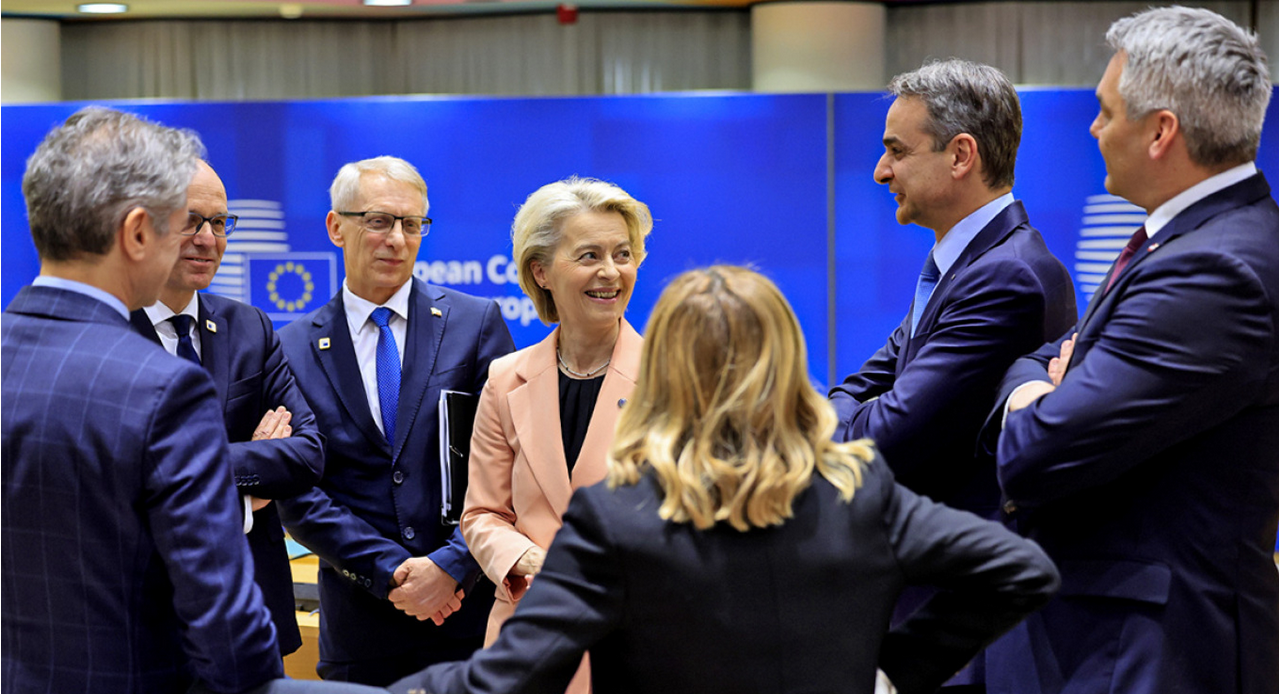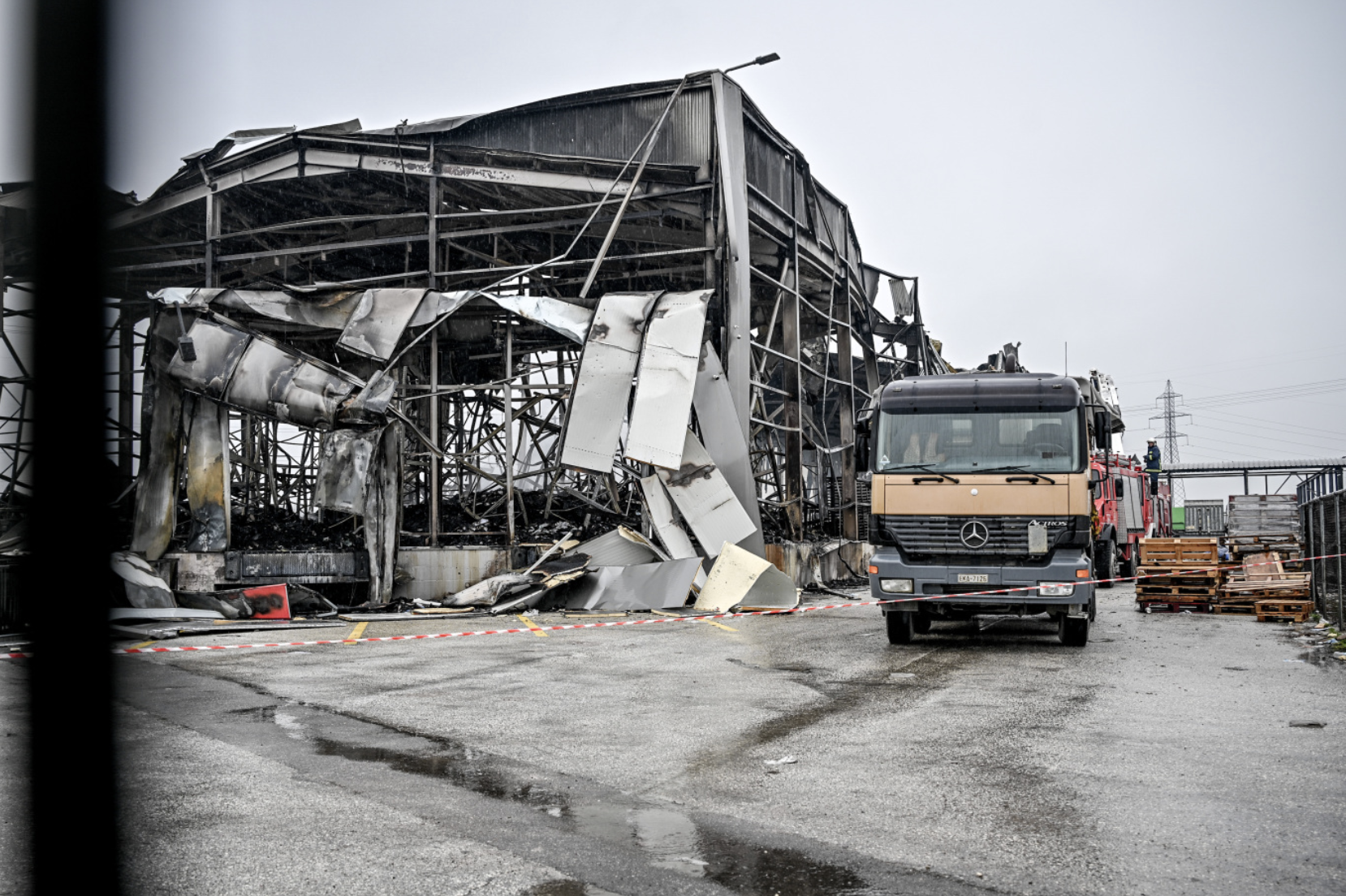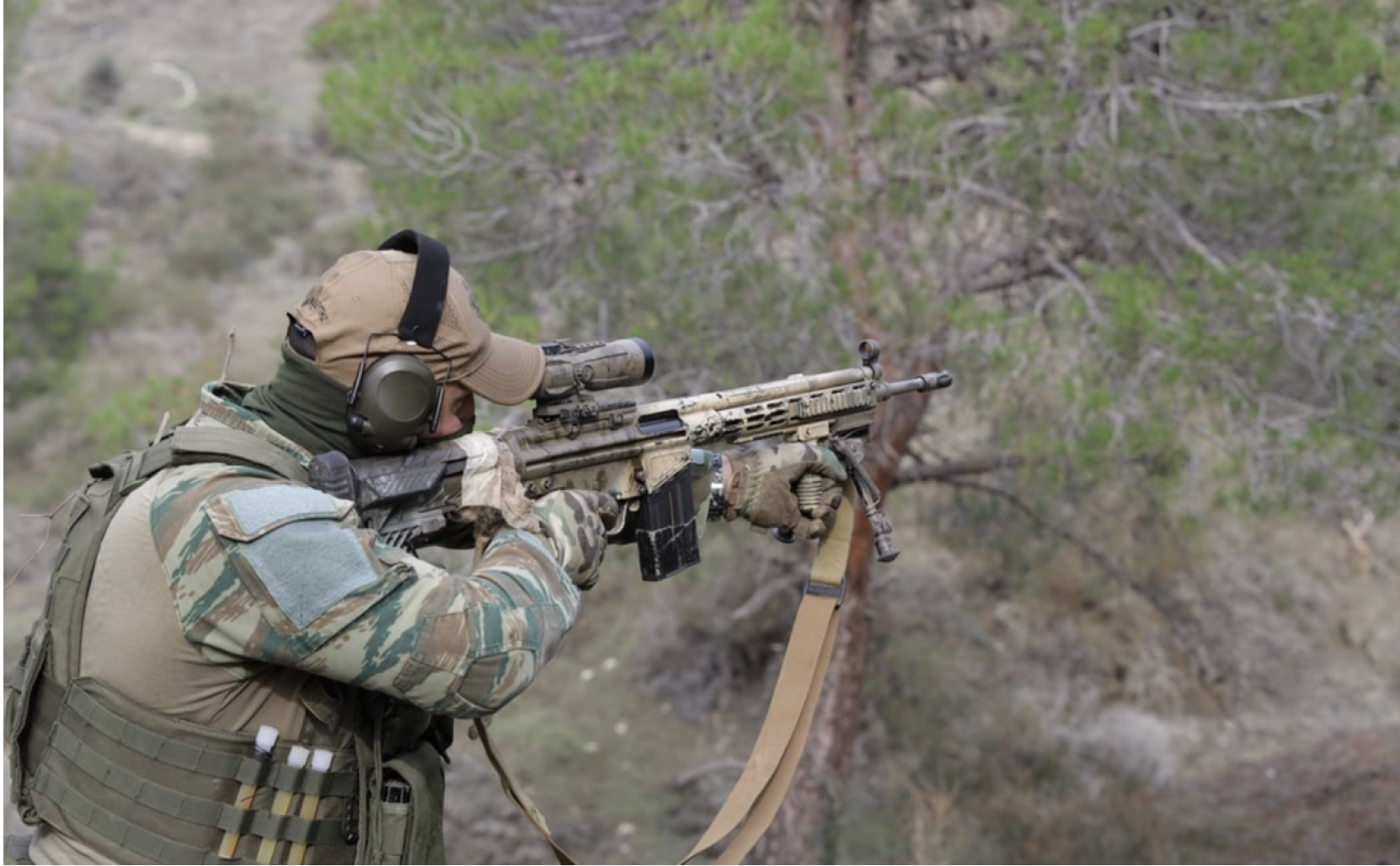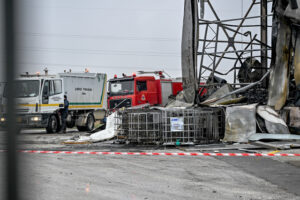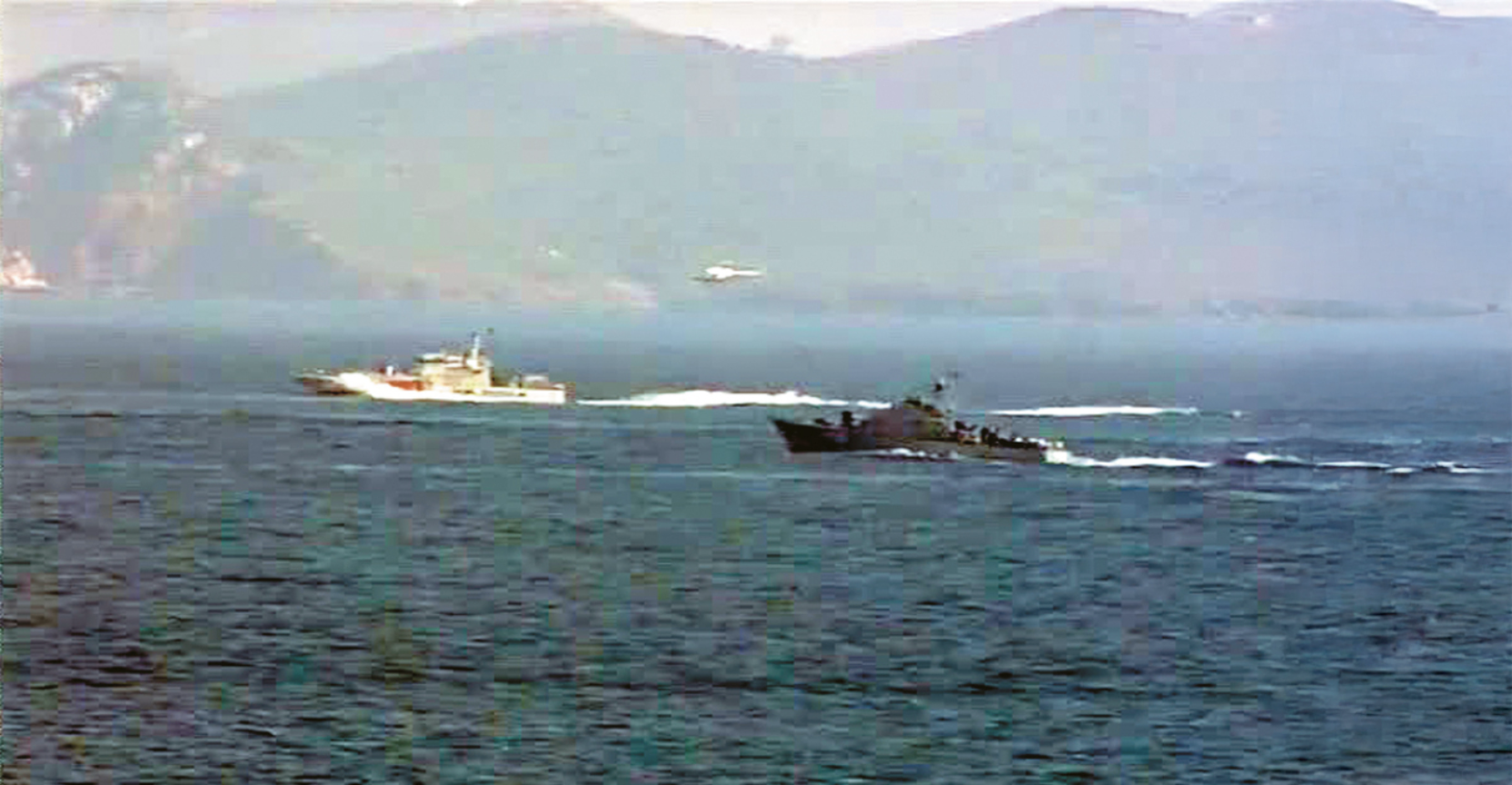The European Union appears divided on the issue of a Eurobond for the defense – something proposed by Prime Minister Kyriakos Mitsotakis upon arriving at the Brussels Summit.
The discussion begins today among European heads of state and government and is expected to continue in the coming months. Brussels’ goal is to strengthen the European industry with public and private investments. The possibility of issuing Eurobonds for defense is one of the “innovative ideas” under consideration.
However, the blocs that have formed seem reminiscent of those during the debt crisis. On the one hand, Northern countries, which do not embrace the idea of a common European fund to which they would contribute – Dutch Prime Minister Mark Rutte expressed opposition – and on the other hand, Southern countries such as France, Italy, and Greece.
“Europe must explore new ways to finance defense spending,” Prime Minister Kyriakos Mitsotakis directly addressed the issue upon arriving at the Summit, as he advocated for the issue of Eurobonds for EU defense.
“Once again, the European family is united against blatant Russian invasion. They have reintroduced the way Europe will secure its autonomy in practice. This essentially means more investments in equipment. Greece has long been a country that surpasses the 2% of its GDP in defense spending. This is not the case for other European countries. If Europe wants to remain defensively fortified, it must explore new ways to finance defense spending,” the Prime Minister emphasized.
See Also:
Cyprus: Mother of missing person waited 50 years for a phone call that came after her death (photos)
For & Against
European diplomatic sources report that the idea proposed by the Prime Minister is supported by the Southern countries, primarily France and Italy.
On the other hand, the traditionally…”frugal” Northern countries are opposed. These include Germany, the Netherlands, Sweden, Denmark, and Austria.
The Netherlands does not agree with the issue of Eurobonds for defense, as stated by Dutch Prime Minister Mark Rutte upon his arrival at the European Council.
However, in the draft conclusions, European leaders call for “all options to be considered” in light of the report expected from the Commission in June.
Ask me anything
Explore related questions
